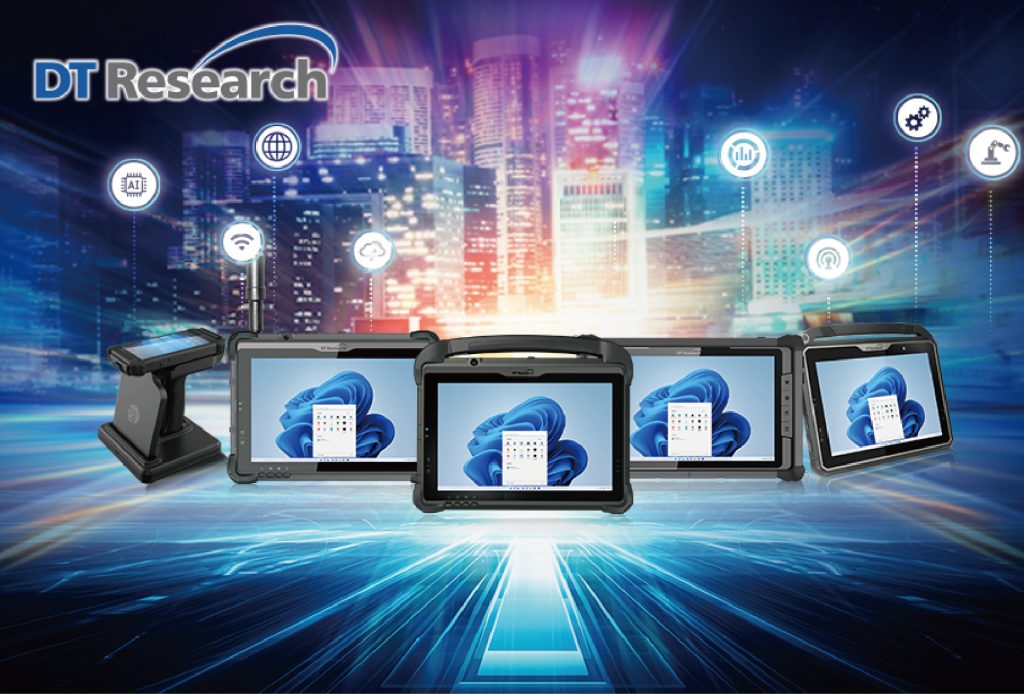
Smart cities are transforming urban living, integrating advanced technology to improve infrastructure, services, and overall quality of life. One essential technology driving this transformation is rugged tablets. These durable and mobile systems are built to withstand harsh environments while offering robust computing power and connectivity. This article explores how rugged tablets are being used in smart cities, highlighting new updates and innovative projects from around the world.
The Role of Rugged Tablets in Smart Cities
Enhancing Public Safety
Rugged tablets play a critical role in enhancing public safety within smart cities. Equipped with GPS, real-time data sharing, and high-resolution cameras, these versatile computers enable law enforcement and emergency services to respond more efficiently to incidents. For instance, police officers can access criminal databases and receive live updates during patrols, while firefighters can use rugged tablets to navigate complex building layouts and monitor hazardous situations.
Infrastructure Management
Smart cities rely on advanced infrastructure management to maintain and improve urban environments. Rugged tablets are used by maintenance crews to monitor and manage infrastructure such as roads, bridges, and public transportation systems. These powerful computers can handle extreme weather conditions and provide real-time data on infrastructure health, enabling timely repairs and reducing downtime.
Environmental Monitoring
Environmental sustainability is a core aspect of smart city initiatives. Rugged tablets are employed in monitoring air quality, water levels, and other environmental factors. For example, in Amsterdam, rugged tablets are used to collect data from sensors placed throughout the city, helping to manage resources and reduce pollution.
Latest Updates in Rugged Tablet Technology
Improved Durability and Performance
Recent advancements in rugged tablet technology have focused on enhancing durability and performance. Modern rugged tablets are now equipped with more powerful processors, longer battery life, and improved resistance to extreme temperatures, dust, and water. This makes them even more reliable for use in challenging urban environments.
Integration with IoT and AI
The integration of rugged tablets with the Internet of Things (IoT) and artificial intelligence (AI) is driving smart city innovation. IoT-enabled rugged tablets can collect and analyze data from connected devices and sensors, providing valuable insights for city management. AI algorithms can process this data to optimize traffic flow, reduce energy consumption, and improve public services.
Enhanced Connectivity
Maintaining reliable connectivity is crucial for the effective use of rugged tablets in smart cities. New models now support 5G networks, offering faster data transmission and lower latency. This ensures that city workers can access real-time information and communicate seamlessly, even in densely populated urban areas.
Notable Smart City Projects Using Rugged Tablets
Barcelona, Spain: Smart City Infrastructure
Barcelona is a leading example of a smart city leveraging rugged tablets to enhance urban living. The city uses these devices for various applications, including traffic management, public safety, and environmental monitoring. Rugged tablets help city officials collect and analyze data, enabling more informed decision-making and efficient resource allocation.
Singapore: Intelligent Transportation System
Singapore’s Intelligent Transportation System (ITS) is a pioneering project that utilizes rugged tablets to optimize public transportation. Bus and train operators use these devices to monitor schedules, manage routes, and communicate with central control centers. The tablets’ durability ensures they remain functional despite constant use and exposure to varying environmental conditions.
Dubai, UAE: Smart Policing
Dubai’s police force employs rugged tablets to enhance law enforcement capabilities. Officers use these devices to access real-time information, file reports, and communicate with headquarters. The tablets are also integrated with facial recognition technology, helping officers identify suspects and improve public safety.
New York City, USA: Infrastructure Maintenance
New York City has implemented rugged tablets in infrastructure maintenance programs. These devices are used by field workers to inspect and repair roads, bridges, and other critical infrastructure. The tablets’ rugged design ensures they can withstand the harsh conditions often encountered during maintenance work, such as extreme weather and heavy equipment usage.
Tokyo, Japan: Disaster Management
In disaster-prone areas like Tokyo, rugged tablets are essential tools for disaster management. Emergency responders use these devices to coordinate rescue operations, access real-time information on affected areas, and communicate with other agencies. The tablets’ durability and reliability are crucial in ensuring they remain operational during emergencies.
Future Prospects and Innovations
Augmented Reality (AR) and Virtual Reality (VR)
The integration of AR and VR with rugged tablets holds significant potential for smart cities. These technologies can enhance training for emergency responders, provide detailed visualizations of infrastructure projects, and improve public engagement through interactive experiences. For example, AR can help maintenance crews visualize underground utilities, reducing the risk of accidental damage during excavation work.
Renewable Energy Management
As cities increasingly adopt renewable energy sources, rugged tablets will play a vital role in managing these systems. These devices can monitor solar panels, wind turbines, and energy storage units, ensuring optimal performance and early detection of issues. This contributes to a more sustainable and efficient energy grid.
Advanced Data Analytics
The future of smart cities lies in advanced data analytics, and rugged tablets are key enablers of this trend. With the ability to process large volumes of data on-site, these robust computers can provide real-time insights that drive smarter decision-making. For instance, traffic data collected by rugged tablets can be analyzed to optimize signal timings, reducing congestion and improving traffic flow.
Rugged tablets are indispensable tools in the development and operation of smart cities. Their durability, advanced features, and integration capabilities make them ideal for various applications, from public safety to infrastructure management and environmental monitoring. As technology continues to evolve, rugged tablets will play an even more significant role in shaping the cities of the future, driving innovation and improving the quality of urban life. By staying updated with the latest advancements and global projects, cities can harness the full potential of rugged tablets to create smarter, more sustainable urban environments.

